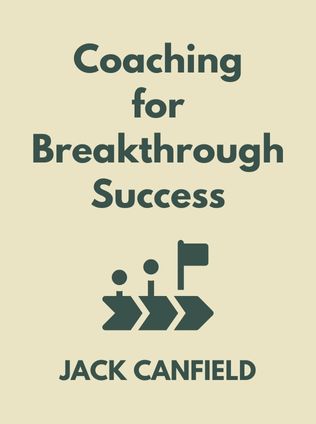
Coaching for Breakthrough Success
Proven Techniques for Making Impossible Dreams Possible
By Jack Canfield,
Published 07/2013
About the Author
Jack Canfield is a renowned figure in the field of personal development and coaching, widely recognized as America's #1 Success Coach. He is the co-creator of the immensely popular Chicken Soup for the Soul series, which has sold over 125 million copies worldwide. Canfield has authored or co-authored more than 200 books, including notable titles like The Success Principles, Maximum Confidence, and The Power of Focus. His impressive achievements include holding the Guinness World Record for the most books on the New York Times Best Seller List, with 60 bestsellers and 11 reaching the number one spot.
Dr. Peter Chee is a prominent global leadership development expert with over 26 years of experience. He is the president and CEO of ITD World, an organization dedicated to training and developing leaders from over 80 countries. Dr. Chee is a master trainer and mentor coach for programs developed by Jack Canfield and John Maxwell. He co-invented the Situational Coaching Model (SCM) and co-authored books such as The Twelve Disciplines of Leadership Excellence and Becoming an Effective Mentoring Leader.
Main Idea
At the heart of Coaching for Breakthrough Success is the belief that every person possesses unique gifts and the potential for greatness. This book combines time-tested principles of exemplary coaches with the latest techniques used by top-performing leaders to provide a comprehensive guide for achieving coaching excellence. The authors, Jack Canfield and Dr. Peter Chee, offer a step-by-step playbook to nurture the essential elements of coaching: heart, mind, and energy.
The book is divided into three main parts: The Coaching Principles (TCP), representing the Heart of a coach; the Situational Coaching Model (SCM), representing the Mind of a coach; and the Achievers Coaching Techniques (ACT), representing the Energy of a coach. Each section delves into specific principles, models, and techniques that collectively equip coaches to achieve professional mastery and deliver breakthrough results.
Table of Contents
- The Coaching Principles (TCP): The Heart of a Coach
- The Situational Coaching Model (SCM): The Mind of a Coach
- The Achievers Coaching Techniques (ACT): The Energy of a Coach
The Coaching Principles (TCP): The Heart of a Coach
The Coaching Principles, symbolized by the heart of the coach model, form a solid foundation for life, impacting values, beliefs, and philosophies that permeate successful coaching relationships. This section emphasizes the importance of developing a great coaching spirit, building authentic relationships, and asking empowering questions.
The Coaching Spirit: Principles 1-7
Developing a great coaching spirit involves believing in human potential, adding value to others, and thriving on challenges. Effective coaches inspire by having strong faith in the potential of the people they coach. This faith lifts the talent and motivation of both the coach and the coachee.
Adding Value to Others: Great coaches help individuals find fulfillment through goal achievement, problem-solving, learning and development, and installing new beliefs and habits. The act of adding value involves drawing out the best in people and empowering them to lead themselves.
"Coaching is about helping people realize their own inner wisdom and release the talent and strengths that lie within them." - Jack Canfield
Thrive on Challenges: Coaching presents numerous challenges, and the right attitude towards these challenges is crucial. Each problem is an opportunity to learn and grow. Coaches must ensure their clients face challenges strong enough to facilitate growth, and through this process, both the coach and the client grow.
The principles of maintaining authentic rapport, touching hearts with care and sincerity, and practicing integrity to build trust are fundamental in establishing successful coaching relationships.
Relationship and Trust: Principles 8-10
Building authentic rapport involves creating a comfortable and trusting relationship with clients. Humor can play a significant role in this process, reducing tension and fostering creativity. Integrity is the cornerstone of trust, requiring coaches to "walk the talk" and be consistent in their actions and words.
Sign up for FREE and get access to 1,400+ books summaries.
You May Also Like
The Subtle Art of Not Giving a F*ck
A Counterintuitive Approach to Living a Good Life
By Mark MansonRich Dad Poor Dad
What the Rich Teach Their Kids About Money - That the Poor and Middle Class Do Not!
By Robert T. KiyosakiHow To Win Friends and Influence People
The All-Time Classic Manual Of People Skills
By Dale CarnegieQuiet: The Power of Introverts
The Power of Introverts in a World That Can't Stop Talking
By Susan Cain



















